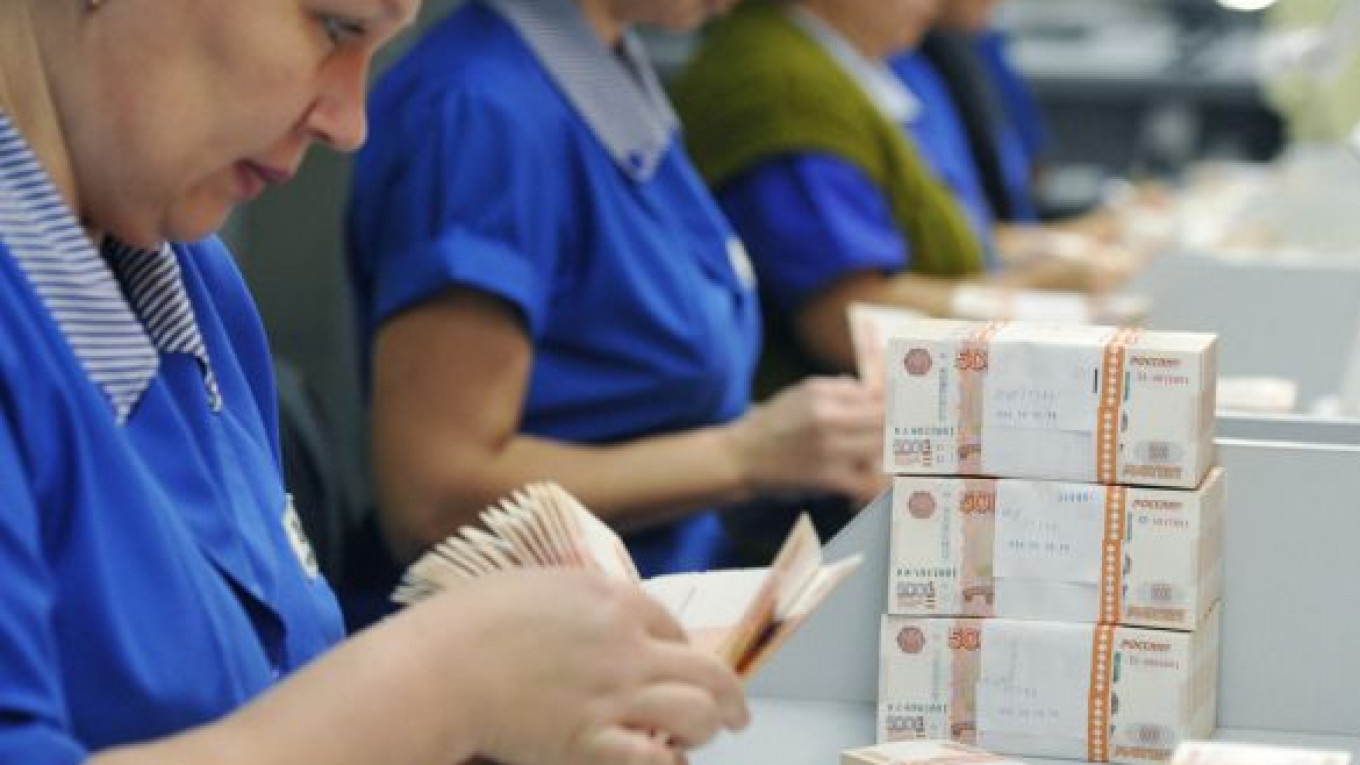Russians should not keep their savings in rubles, as the currency is likely to depreciate, the head of the Banking Institute at the Higher School of Economics Vasily Solodkov said.
"From now on, ruble exchange rate fluctuations against dollar and euro will be far more significant," newspaper Argumenty i Fakty quoted Solodkov as saying Wednesday.
"Considering the condition of the Russian economy — slowing production growth, budget deficits and so on — the ruble's value is likely to gradually decrease. I would advise people to convert their savings into hard currency," he said.
Solodkov was responding to a question from one of the newspaper's readers asking whether he should buy dollars and euros following the Central Bank's decision to abandon its policy of direct currency interventions and move toward a floating exchange rate.
Forty percent of Russians have savings in rubles, while only 5 percent and 3 percent of the Russians have savings in dollars and euros, respectively, according to a public opinion poll conducted by VTsIOM this month.
About half of the respondents said they do not follow the exchange rates, the poll found.
On Jan. 13, the Central Bank said it will no longer conduct direct currency interventions, which previously amounted to $60 million per day in order to move toward a floating exchange rate by 2015.
First deputy Central Bank chief Ksenia Yudayeva said in a television interview to Rossiya 24 last week that the decision to abandon targeted currency interventions may contribute to ruble's volatility, but said their effect had been more cosmetic than real, given that the ruble's increasing volatility is determined by macroeconomic factors.
A Message from The Moscow Times:
Dear readers,
We are facing unprecedented challenges. Russia's Prosecutor General's Office has designated The Moscow Times as an "undesirable" organization, criminalizing our work and putting our staff at risk of prosecution. This follows our earlier unjust labeling as a "foreign agent."
These actions are direct attempts to silence independent journalism in Russia. The authorities claim our work "discredits the decisions of the Russian leadership." We see things differently: we strive to provide accurate, unbiased reporting on Russia.
We, the journalists of The Moscow Times, refuse to be silenced. But to continue our work, we need your help.
Your support, no matter how small, makes a world of difference. If you can, please support us monthly starting from just $2. It's quick to set up, and every contribution makes a significant impact.
By supporting The Moscow Times, you're defending open, independent journalism in the face of repression. Thank you for standing with us.
Remind me later.






